Tasleema Begum wakes earlier than the solar rises over Srinagar’s hills. She ties her dupatta, steps into the morning chill, and walks to her strawberry fields. There’s no time for a full breakfast — strawberries should be picked earlier than the solar will get too robust. Every morning begins like this: with palms deep in crimson fruit and a thoughts already balancing chores, market runs, and residential.
Fifteen years in the past, Gassu was a village of paddy fields and tight routines. Then the water dried up, and the fields stopped listening. One crop disappeared. One other arrived.
And with it, every little thing modified — particularly for the ladies.
Commercial
The shift wasn’t unintentional. As water shortage deepened, Gassu’s paddy fields grew to become more durable to maintain. Many farmers turned to strawberries, a extra resource-efficient crop, and in doing so, discovered a solution to adapt to local weather change.
At the moment, over 60 % of Gassu’s individuals develop strawberries, and practically half of them are ladies. Girls who as soon as spent their days behind closed doorways now handle fields, earn cash, and make selections. For a lot of, it started not with confidence — however with necessity.
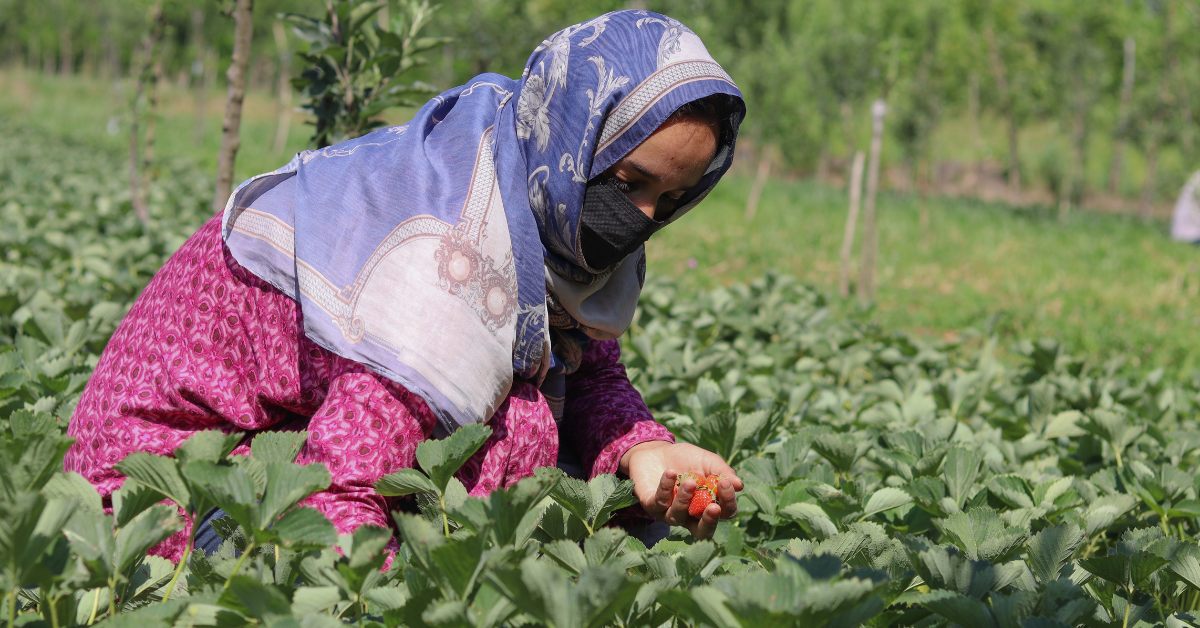
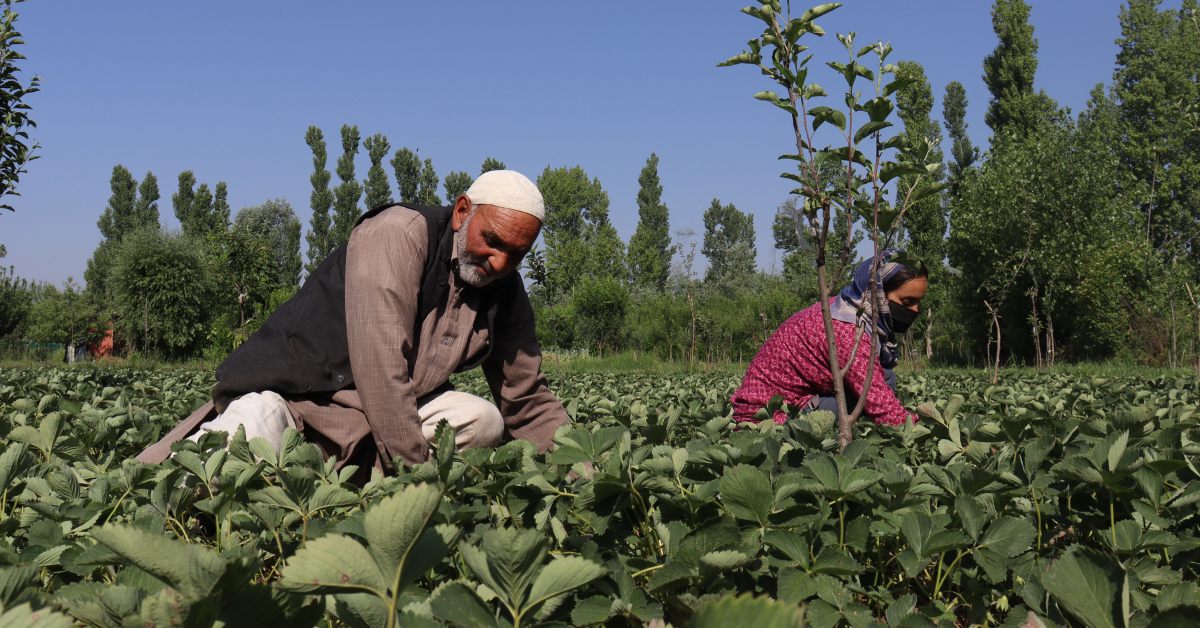
Collectively, ladies kind the spine of the village’s financial system. Girls typically work in teams, beginning simply after morning prayers and persevering with until noon. Their presence within the fields is now a day by day rhythm — as acquainted because the dawn.
‘I by no means thought the fields have been for me’
In 2007, when farmers in Gassu first started rising strawberries, Tasleema didn’t pay a lot consideration. It was her husband who believed within the crop. She helped him sometimes, however didn’t see it as her personal work.
“It has been greater than a decade now,” she tells The Higher India, standing within the subject she as soon as ignored. “We develop strawberries on two kanals of land. My husband alone can’t handle it. I do the farming, run the home — every little thing.”
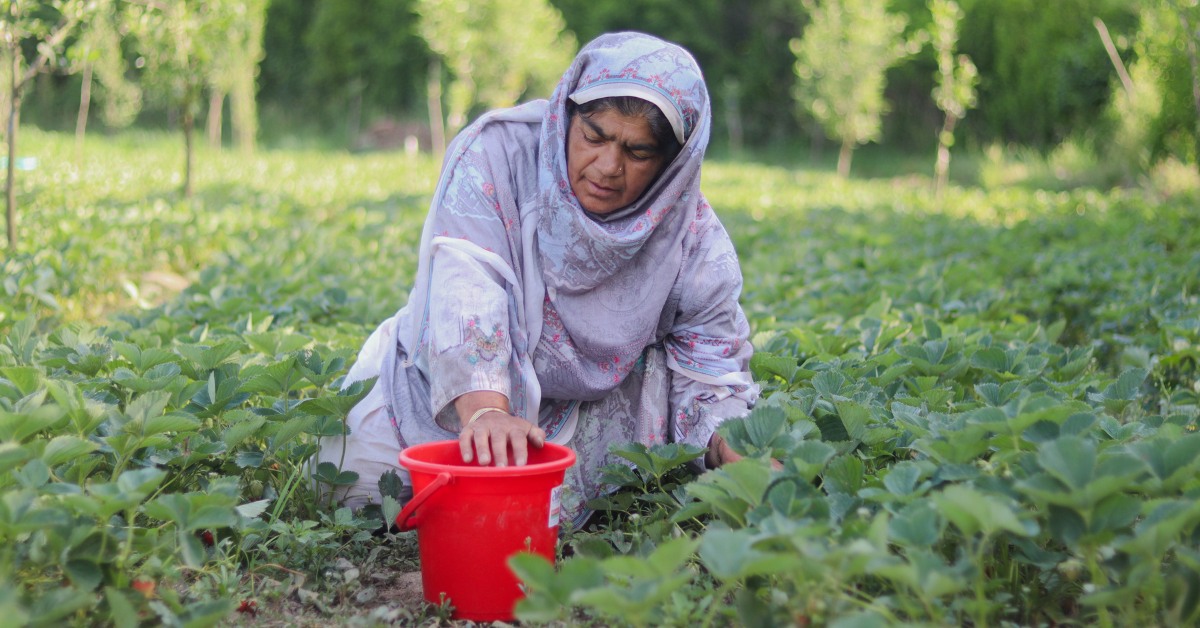
From mid-April to late Might, the strawberry harvest takes over her life. “Within the mornings, I barely get time to organize breakfast. The fruit should be picked early, earlier than the warmth spoils it,” she explains. On common, they pack round 400 bins each season — over 4 quintals of fruit.
Commercial
What started as help slowly grew to become id. “This land is my pleasure. I deal with it like my very own baby,” Tasleema says.
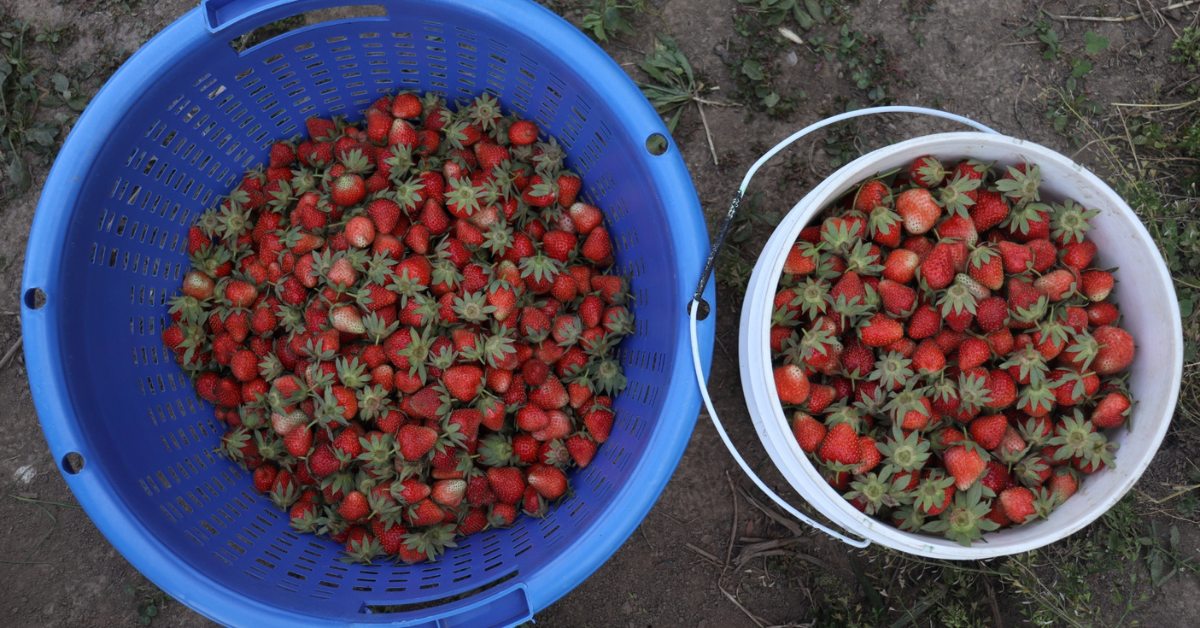
And it has introduced her greater than cash. “I obtain lots of respect from my husband and kids. Nobody questions me for working — they respect me,” she provides, smiling.
Now, Tasleema is aware of precisely the place she stands — on her personal land, in work that she understands deeply, and in a house the place her function is seen and valued.
She first mentioned no to farming — then constructed a enterprise
When Shahzada Begum (36) obtained married and moved to Gassu, farming was the very last thing on her thoughts. A postgraduate, she had by no means imagined herself within the fields.
“I advised my husband I wasn’t prepared for this,” she recollects. “I wasn’t married to do farming.”
At first, she stayed again. However each morning, she watched her household step out with baskets and return hours later with red-stained palms and drained smiles. Slowly, one thing shifted.
Commercial
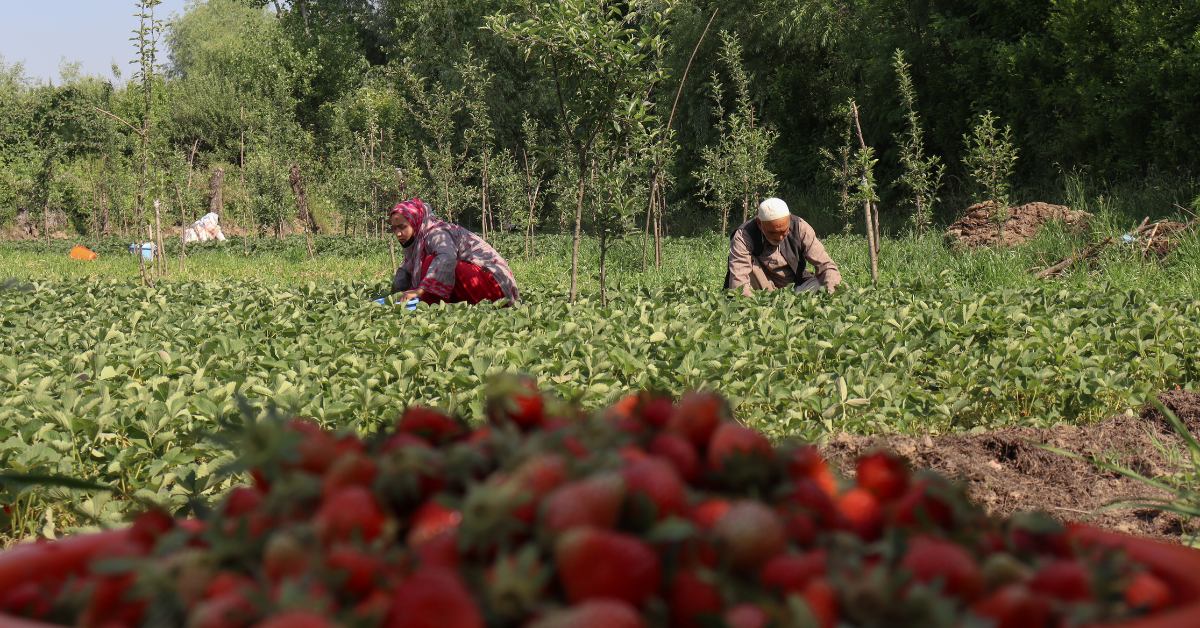
Now, Shahzada leads the work, from selecting at daybreak to packing and transporting the fruit to Srinagar’s Fruit Mandi. “To start with, I struggled. However now I see myself as somebody who has selections. I’m not confined. I run my enterprise, I earn, and I assist others discover work,” she says.
For Shahzada, the change isn’t simply private — it’s cultural. “Girls and society have each modified,” she says. “I didn’t need to keep inside the home on a regular basis. I discovered one thing of my very own, and that issues.”
Nonetheless, it hasn’t been straightforward. “Due to non secular norms, some ladies hesitate to work exterior. However that is my land and my enterprise. I’m pleased with it,” she says firmly.
Left alone, she turned to the land
After her husband handed away, Kulsuma (45) was left with two kids and no clear path ahead. With no steady revenue and solely 15 marlas of land (roughly 272 sq ft), she decided that may change every little thing — she turned to strawberry farming.
“This work gave me a way of reduction,” she says. “But it surely’s not straightforward. Managing the sector, the family, and my kids’s schooling is exhausting.”
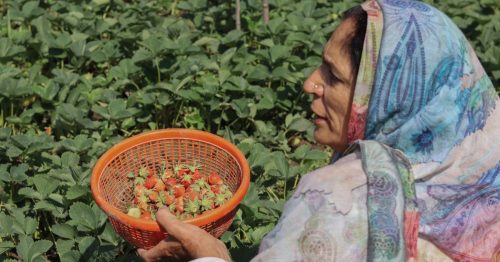
There are days she thinks of quitting. The labour is intense, and the loneliness heavier. Nonetheless, she continues. “That is the one approach I can help my kids. The sector has develop into part of me. It calls for my time, however it additionally provides me energy.”
Commercial
Her perseverance hasn’t gone unnoticed. In Gassu, individuals have began to see her not simply as a widow, however as a lady who stood her floor. “Individuals respect me for what I do. As a widow, that respect means so much. I really feel stronger due to it,” she tells The Higher India.
She nonetheless carries her grief, however the work retains her going. The sector calls for her time and vitality, but it presents one thing regular in return—a solution to stand on her personal.
‘I wanted to breathe. The land saved me.’
For 40-year-old Dar Rubeena, the fields introduced one thing she hadn’t felt indoors—freedom.
“I can’t keep indoors on a regular basis. It suffocates me,” she says. “Working within the fields provides me vitality.”
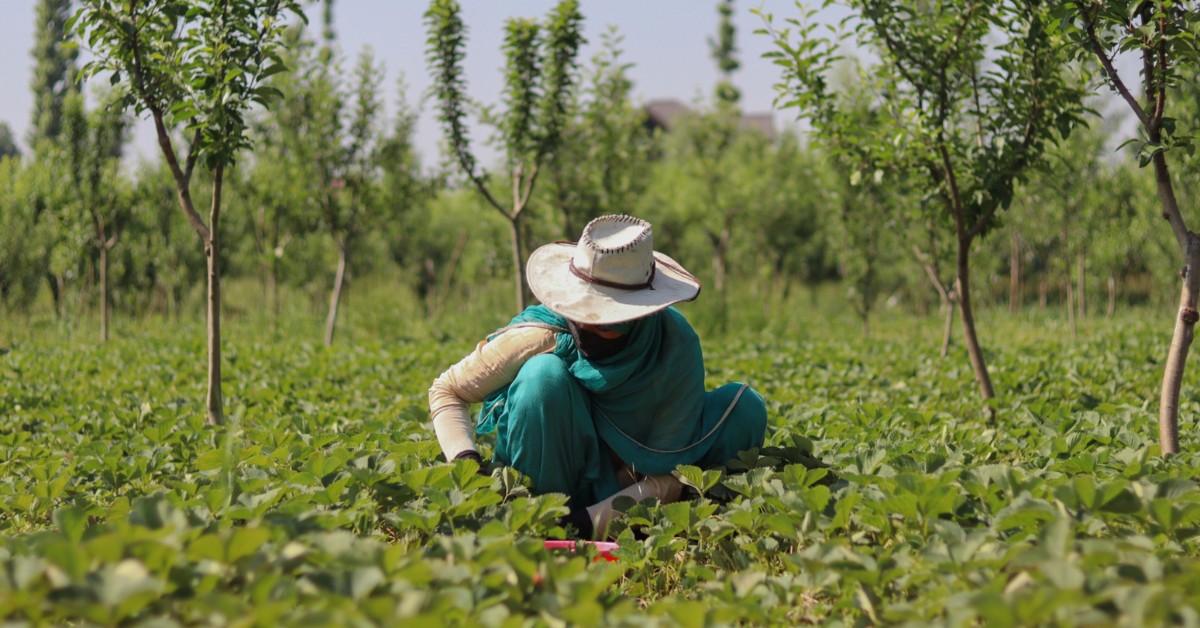
She started farming out of necessity. Through the years, her function grew. With every harvest, she constructed a rhythm — studying how one can handle, promote, and lead. “With out dedication, you may’t transfer ahead,” she says. “Balancing the home and the farm is troublesome, however I’ve by no means wished to cease.”
Her husband’s help made the journey simpler. “He has been with me each step of the best way. His assist made an enormous distinction.”
Commercial
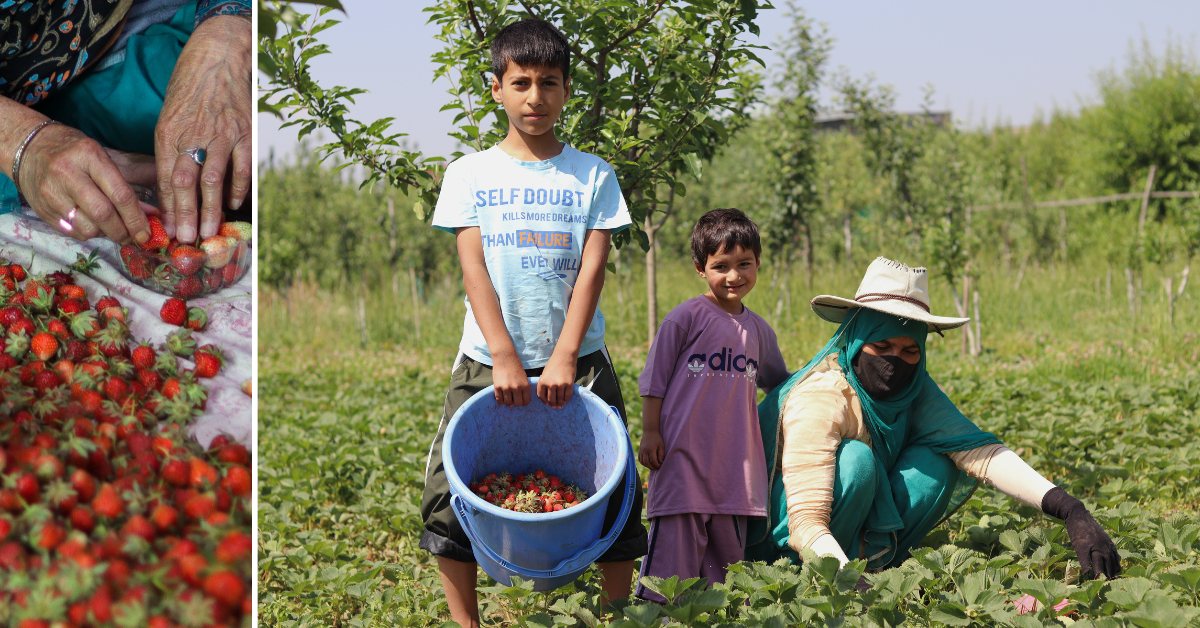
Rubeena now earns round Rs 60,000 per kanal throughout the strawberry season. She speaks about her work with regular confidence. “Girls have formed this shift. We used to remain at house. Now, we’re managing land, incomes steadily, and making selections.”
She even encourages different ladies to step into no matter work provides them independence. “I’ve constructed one thing of my very own right here. Others can too.”
What occurs when ladies take the lead
In a village of practically 10,000 individuals, strawberry farming has develop into the first supply of livelihood for 60 % of the inhabitants. With every family investing time and land into the fruit, the transformation is now not simply financial — it’s seen in the best way Gassu lives and strikes.
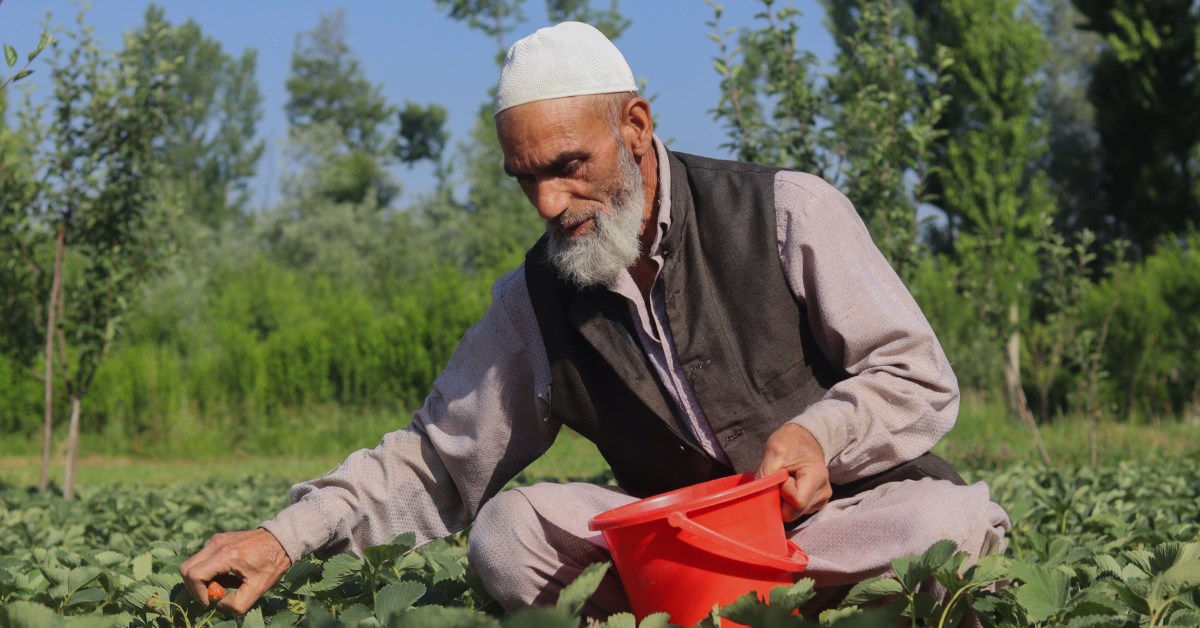
Every morning, ladies stroll to the fields with crates balanced on their hips. Their palms flip crimson earlier than the solar is absolutely up. On the mandi stalls in Srinagar, consumers greet them by title. A lot of the fruit is offered there, however some ladies additionally promote by the roadside, to native outlets close to the Mughal Gardens, and even to eating places that serve vacationers.
Fifteen years in the past, most of those ladies not often stepped past their properties. Now they’re dealing with gross sales, working farms, and shaping the choices that outline their households’ futures.
Through the peak season, every field of strawberries sells for Rs 100 to Rs 200. It’s a powerful supply of revenue—for many who can shield their crop from sudden rain or harsh warmth.
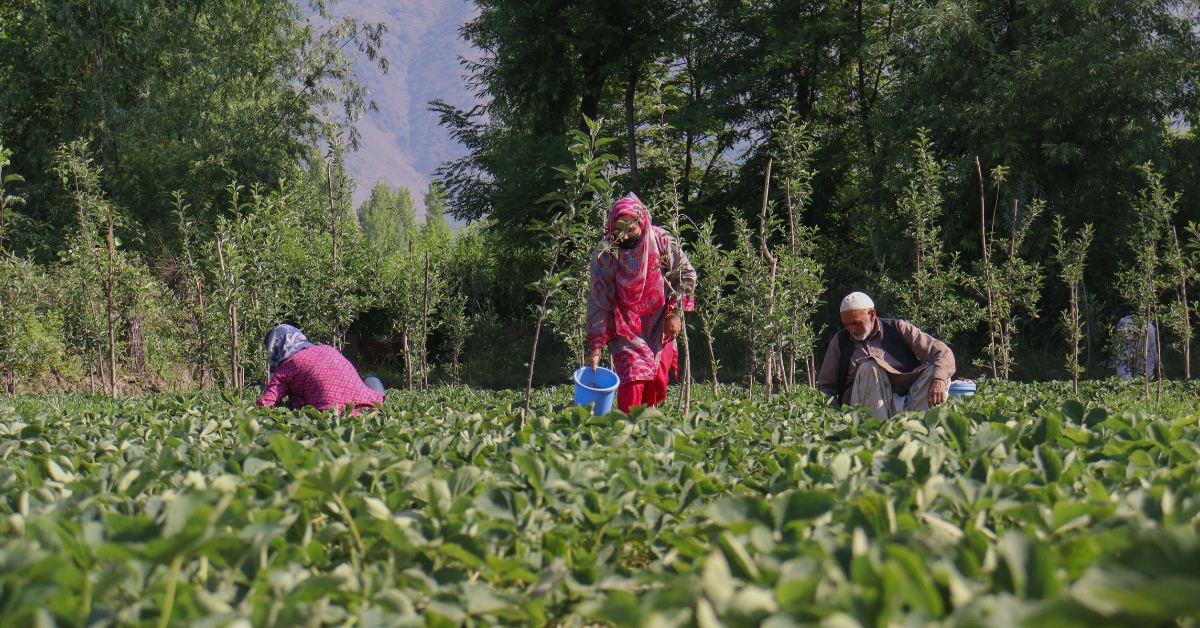
Nonetheless, season after season, they present up. With each harvest, they’re constructing one thing deeper than revenue. They’re constructing confidence, incomes respect, and changing into seen in areas the place they have been as soon as unseen.
The crates carry strawberries, however the true harvest is more durable to see — ladies entering into roles they have been as soon as denied, making selections for his or her land, their households, and the futures they now really feel courageous sufficient to think about.
The fruit leaves in crates. The ability stays with the ladies who stroll these fields like they’ve at all times belonged.
All photos courtesy Muazam Mohi Ud Din

